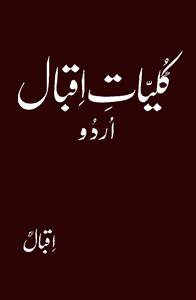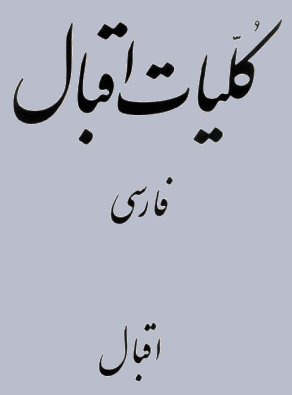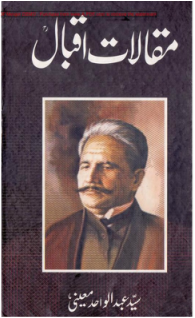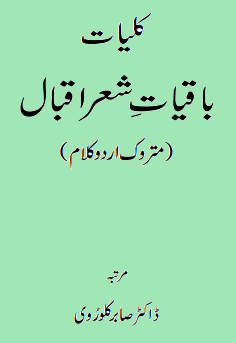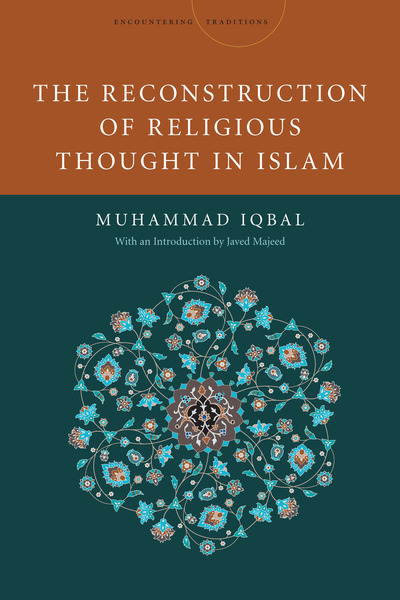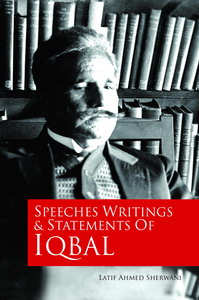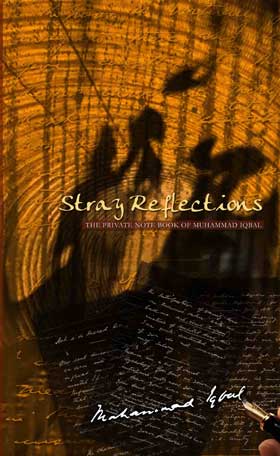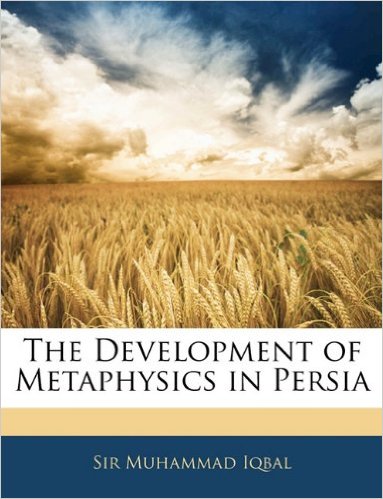The Mystical Thoughts of Iqbal and its Contemporary Use
The Mystical Thoughts of Iqbal and its Contemporary Use
Sayed Mustafa Saiedy
University Lecturer
Talking about the history man of the orient, the multidimensional character who is either a philosopher or a fighter; the master of thoughts and the mystics, and a prominent poet, whose thoughts goes beyond the sun. The mystical thought of Iqbal is based on the teachings of Islam and is in harmony with the current situation of the world. Through the study of genuine Islamic sources, understanding the material and spiritual needs of today’s mankind, learning from the history of humanity, and contemplating about the old and new philosophical and mystical thoughts, Iqbal begun to reconstruct the religious and mystical thoughts of Islam. He argues that the traditional mystical views, regardless of the spiritual and material needs of the new age, are never answerable today. In the thought of Iqbal, motion and love play an essential role; it's as if love moves with motion and motion with love. His school is a dynamic school, of which, the seeker ascends toward the absolute perfection. But he will never suffice to direct "personal" and "salvation". He calls for the formation of a community of monotheists, regardless of any boundary, in which the society goes and finds absolute perfection. This is where he coordinates mysticism, as an internal movement, with the formation of community as an external act. In his thought, the harmony of religion and the world, power and poverty, matter and spirituality, inward, outward and combat, is not only possible but is also considered very essential. The real ascetic is to conquer the world and not to leave it; in other words, mysticism is in getting the world rather than leaving the world. In Iqbal’s mysticism, "human" has a special place. The status of human in poetry and thought of Iqbal is so high that neither the human beings want to lose themselves in front of God nor want to become mortal in nature. But human in the thought of Iqbal, always keeps his independence and self. Since human beings also have the odor of God and the attributes of God can be seen as humongous in humans.
Today, in the world, a country or a region cannot be found, of knowing the thoughts and poems of Allamah Mohammad Iqbal (Lahori), or at least keep in mind a Ghazal from him. The high reputation of the Allamah of the Orient was less during his lifetime.
Allameh Iqbal Lahori is a famous poet of Persian language in the subcontinent of India, who has a lot of fame and popularity in Persian-speaking countries such as Afghanistan, Iran and Tajikistan. All people in the Indian subcontinent are well acquainted with his character and poetry. If he is known as the third Persian-language poet of the sub-continent after Amir Khosrow and Mirza Bidel, who is famous among Persian speakers, or even if to call him as the first Persian poet of the region to be world-famous, indeed, we have not been far from the truth.
One of the main reasons for the reputation of Allameh Iqbal was his thought, which paid special attention to the ideals and needs of the people of the world, especially the people of the East and the Islamic world, and this factor played a significant role in the political, theoretical, cultural and civil revolutions (1).
Allama Iqbal Lahori, on the basis of his own thought (self-wisdom), which is of the eastern wisdom, challenges western wisdom and materialist philosophies, humanitarian and their absurdities. His wisdom is a mixture of argument, mysticism, Quran, hadith, love, pain, nature, consciousness, awakening, passion and epic that embraces the notion and practice of excellence. Iqbal summarizes the rationality of the Western world in the technology and the news, and considers it free from the viewpoint and intuition. He sees the achievement of the West's culture and civilization as of wise- tool and destruction of hearts.
With all the intensity of being against colonialism and his emphasis on India, the motive of the Indian spirit and the mobilization of the people of India, along with the humiliation of the culture, spirit, the role of the land, the celebration of the history, the sanctity values inherent in his own nation; does not suffered him from nationalism nor from fascism.
Iqbal had a religious enthusiasm; the slogan of returning to Quran and anti-religious philosophies of Hegel, Nietzsche, the scientific spirit of the nineteenth century, the love of God and Islam, Muhammad, Ali, Fatimah and Hussein, did not cripple him with religious fanaticism.
Iqbal Lahore is a poet who awakens the intellectual and conscious mind and ability of the human community in the contemporary world. He cannot be regarded as a specific nationality, because his worldview has made him a global personality, especially in the East. Addressing all of his work is beyond the scope of an article.
"Self-Secrets" expresses part of his mystical look to human and the world. It is, of course, different in expressing the expression of the early Islamic mysticism that has been adapted to the needs of human and his contemporary society. "According to his religious worldview, Iqbal recognizes human being as a great and the caliph and the vicegerent of God in the earth, from the description, (انی جاعل فی الارض خلیفه) and values self-human.
He believes that in the creation, all beings shall benefit each other, and that human, who is part and the summary of creation, should also be subject to this general law. He believes everything from “self” and recognizes the great secret of monotheism in the unity of the “selves”. His thought lives in a time where an eastern human has lost his identity and nationality and is further influenced by the Western cultural dominance, and even the intellectuals of society have forgotten their real mission and position.
Iqbal wants an eastern man to know the high values of human being and further let him know that what is happening around him. Iqbal's theory of “Self”, awakens a person to realize his values and aspirations.
He believes that salvation and success of human is only possible through the illumination and prosperity of Islamic and Oriental mysticism. At first, with a critical review of the past mystical works, assesses and spots the weaknesses and strengths, and further states the advantage of this, to society and people in clear statements.
In his letter to Nicholson, he says: "My critique of Plato towards these philosophical religions recognizes that the universe has identified the ultimate purpose and destiny of humans, not of life, and of the greatest constraints on the way of life, which are monsters and matter, and that they are neglected. Instead of ordering us to depreciate it, they teach us to flee from matter. "
Iqbal wants to teach human the right way through mystical teachings, he advocates the gnostic that not only endorse humans in afterlife, but also in this world. Gnostic that leads human to pride and mastery, not the one that promotes humiliation and oppression.
Of course, what the great mystics have said is all in the path to the happiness of the world and the Hereafter, but only those can benefit from their speeches who have reached the high position of the mystical and divine secrets. Contemporary human being who deals only with the appearance of phrases and does not understand the secrets of its long meanings, they may fall into disrepute, and therefore, some people wrongly believe mysticism and considers it as the backwardness of Muslims and eastern people.
Iqbal has interpreted mysticism in a positive and constructive way, with a simple and proper statement of the general public. Of course, words of Iqbal in appearance may be quite contradictory with the words of the elders, but there are no contradictions in principle and meaning of these words. Iqbal wants the people be aware of their high cultural values and assert them that they are not in the West and that they are not the same as the Westerners, because being like them brings nothing but humiliation and despondency, and the secret of their success depends on priding themselves. But of his this purpose, he is lonely, and few people understands what he speaks of.
He calls to mysticism at a time when all the intellectuals are strongly opposed to mysticism and transcendental values of the Oriental culture and literature. Some people really hate the poets and mystics, and consider their works as a point of humiliation for the people of society, and further insults Rumi's Masnavi, the writings of Sadi, Hafez and others. Iqbal teaches mysticism at a time when the intellectuals such as Akhundzadeh regard mystical works, including Masnavi, as superstitious, and accuses the great mystics as outcast idealists: "In theology, as of philosophy theories, the absurdity of thought and empty imagination exists, likewise realism states and defends the facts accepted by human senses. These thoughts can be found in his writings on Maulana Jalaluddin Mohammad Balkhi, Ferdowsi, Sanai, Nezami, Hafez, and other poets. When he speaks of the Balkh's Maulana he limits his insight on; putting the will and authority as of the whole being. Mowlana's belief in the fate and his slogan “موتوا قبل ان تموتوا ” is due and the reason of his idealism. Another limitation to his insight was, he said that the human soul will walk and go after death. By analyzing these thoughts, Akhundzadeh shows that in the Rumi's Masnavi, most of the material, other than wisdom and fairy tales, is obscure and is tasteless ... furthermore he present’s Mowlana Romi with scientific reasons.
The opinion of Maulana Jalaluddin Balkhi attracted the attention of Akhundzadeh about superstitions. "Iqbal's attitude to “secrets of insiders” is such that he considers the part of the mystical thoughts that are dubious and may be ludicrous for ordinary humans, but Iqbal himself has stated clearly and in a way that does not deter, but is dynamic, effective, and provocative, and it causes the people to be awake and alert.
Iqbal's mysticism is an obvious example that can be applied in modern times and give the person’s personality and equip him against west’s culture and ultimately guarantee his pride, honor and success. Iqbal better knows that all of the political parties of the West and their so-called intellectuals have blocked his way and does not allow his speech to reach the people. But he also believes that there will be a day when the human community will listen to his words and understand it. Although it’s true that on that day Iqbal will not be alive.
The result of the discussion is that the mystical thoughts of Iqbal have taught us that Islamic and Oriental mysticism can have contemporary uses as well.
In today’s world, humans need empathy, interdependence, peace, initiative and innovation, endeavor, political and social solidarity, friendship, and above all in the true sense of being human, is what Iqbal has emphasized over and over again. He further states that the Islamic mysticism and Sufism can be practiced in today's life.
References
- Rahbeen, Mohammad Afsar. Manzoom Baal Jebrail Translation, Introduction, pp 13-14.
- Sharyati, Ali. We and Iqbal. P 153.


